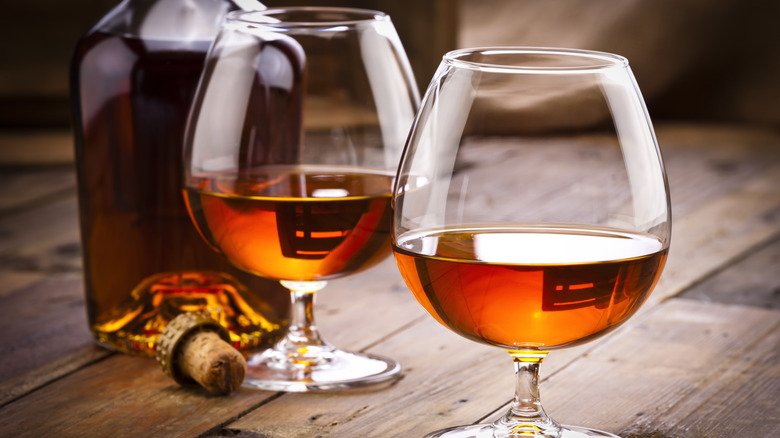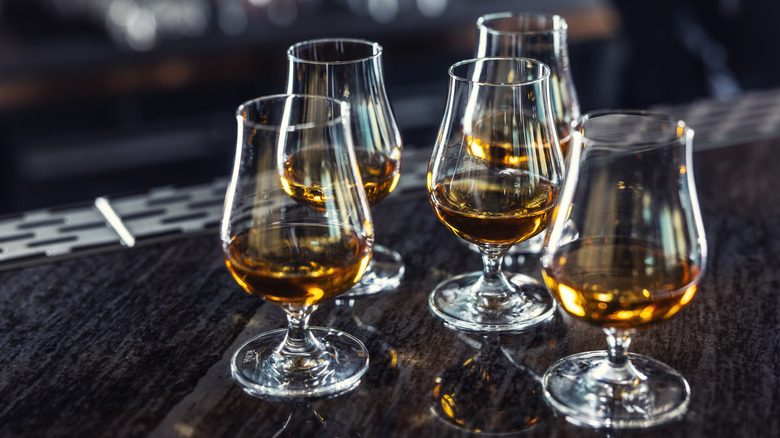Brandy Vs Cognac: What's The Difference?
Ever wondered if Cognac and brandy are the same thing? Or why one bottle can feel like it demands a butler, while another is the perfect liquor for spiked eggnog? The main difference boils down to geography and production. All Cognac is a type of brandy, but every brandy might not necessarily be Cognac. It's like how all Champagne is sparkling wine, but bubbly can only claim the prestigious title of Champagne if it comes from that specific region, and is made following specific rules.
Brandy, the broad category, refers to any distilled wine-based spirit. Cognac, however, is a specific type of brandy with a fancier name and even fancier rules. It hails from the Cognac region of France, and must follow strict production methods — much like how whiskey labeled "Kentucky bourbon" has to be made in that state. If you're sipping Cognac, you're enjoying brandy — but one that's had a bit more of a glow-up.
Whether you're pouring a warming glass of brandy during the holidays, or trying to impress someone with Cognac's regional prestige, there's more to these similar-looking brown spirits than meets the eye. From a neat digestif to creative cocktail potential — such as mixing a frosty Brandy Alexander — it helps to pick the best variation for the occasion.
The key differences between Cognac and brandy
So what really sets Cognac and brandy apart? For starters, it's all about location. Brandy is a broad term for spirits distilled from fermented fruit juice, typically grapes. It can be made anywhere in the world, with countries like Spain, the U.S., and Italy boasting their own unique styles. Besides Cognac, other well-known French brandies include Armagnac, and Calvados.
Meanwhile, Cognac must come exclusively from Cognac, where production is tightly regulated. The spirit is predominantly made from Ugni Blanc grapes, and undergoes double distillation in copper pot stills. It must also age for at least two years in French oak barrels, though it can be aged longer. This meticulous process gives Cognac its signature smoothness and layered flavor profile, often with hints of caramel, vanilla, and dried fruit. Brandy, on the other hand, varies greatly depending on the region. Some are lighter and fruitier, while others pack a robust punch. If you're looking to pair it either with desserts or add complexity to your spiked eggnog, the choice boils down to your taste preferences.
Curious where to begin? In cocktails, brandy is versatile and great for everything from warming winter drinks to refreshing summer sangrias. Cognac, with its premium price tag and nuanced flavor, tends to shine on its own, or in more refined cocktails. Try it in a classy two-ingredient French Connection cocktail, for example. If you're worried about the high price tag, you could try Costco's new Cognac made by a bougie French brand. But whichever you choose, and whether you go high-end or keep it simple, these spirits can each bring something unique to your bar cart.

